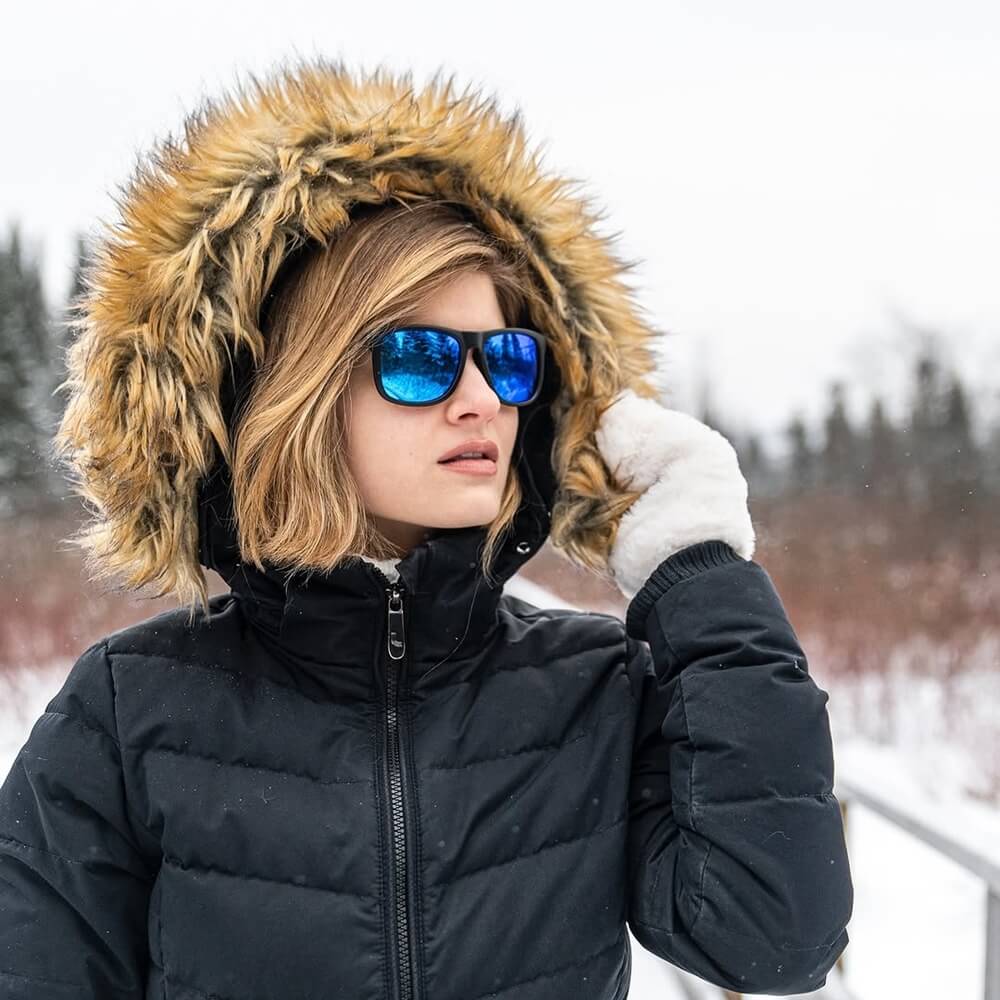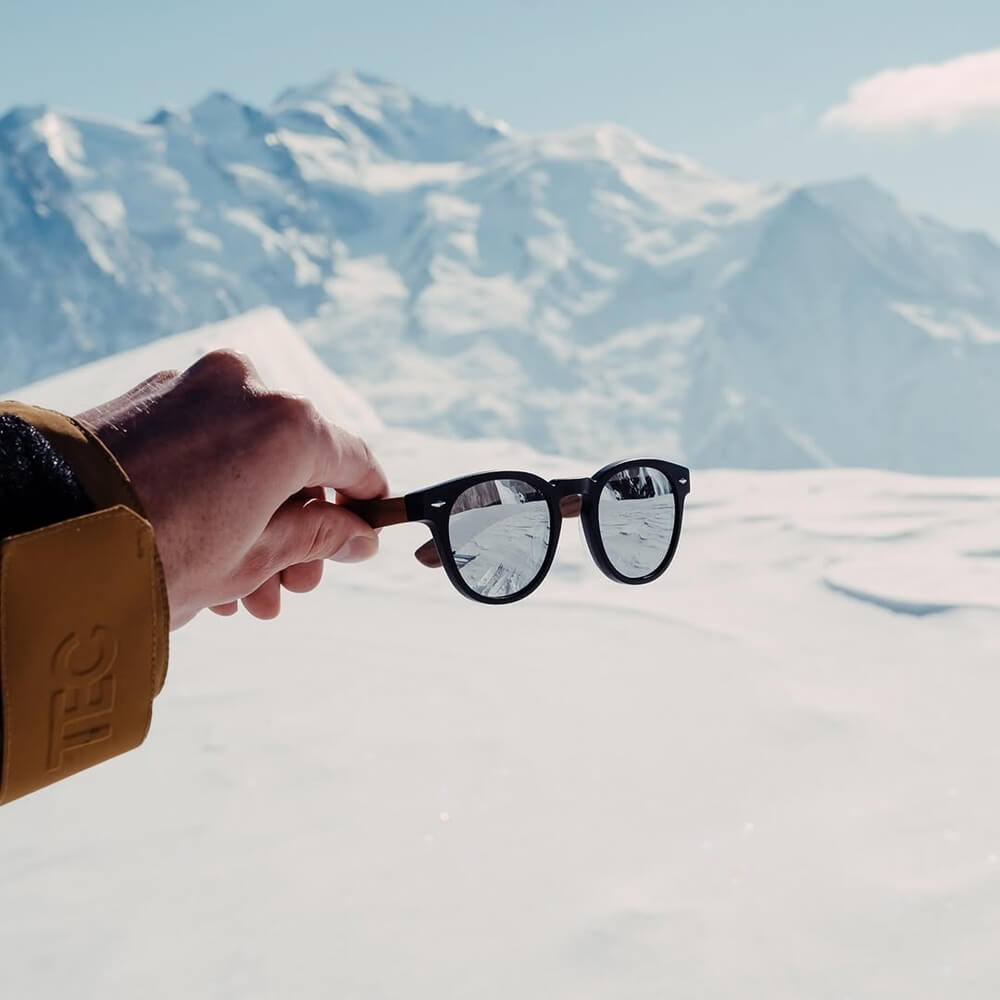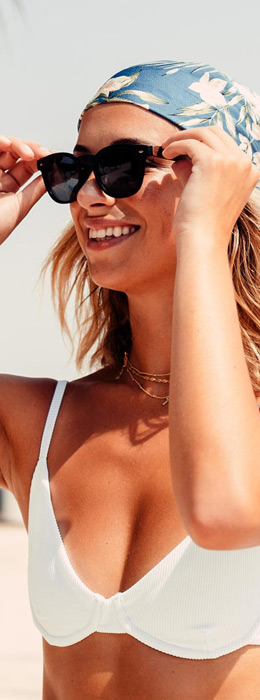general
Do We Really Need Polarized Sunglasses in Winter?
Most of us only think about wearing sunglasses on sunny summer days. But what about winter? When it’s gray and gloomy outside, grabbing your shades might be the last thing on your mind. The truth is that UV radiation levels remain surprisingly high even on cloudy days.
Because of this, taking care of your eyes should be a year-round priority. We’ll explain why polarized sunglasses are your best friend, even in winter.
Snow Blindness and Other Eye Risks in Winter

Spending a lot of time in the sun without protection from harmful UV rays can increase your chances of developing eye problems such as sunburned eyes (snow blindness), cataracts, age-related macular degeneration, and even skin cancer around your eyelids.
Snow blindness is a type of photokeratitis caused by UV rays bouncing off snow and ice. Eye damage from UV rays is especially common in places like the Canadian Arctic, Yukon, northernmost parts of Canada, and high up in the mountains where the air is thinner and doesn’t block as much UV radiation.
Snow blindness can also happen if the surface of your cornea freezes or if the surface of your cornea becomes severely dry due to extremely dry air. Studies often link outdoor activities like mountain climbing, skiing, and snowmobiling to this condition.
What is Photokeratitis?
Photokeratitis happens when your eye gets damaged by ultraviolet (UV) rays. The sun is the biggest natural source of these rays. Sunlight reflecting off water, sand, ice, and snow can also cause it. Staring directly at the sun, like during a solar eclipse without proper eye protection, can also lead to photokeratitis.
A solar eclipse can even cause lasting damage to your retina, which is more serious than temporary damage to the cornea. Besides the sun, welding arcs and tanning beds can also produce UV light.
The good news is that wearing the right polarized sunglasses can prevent eye damage from UV rays and prevent wrinkles from forming around your eyes too soon.
Wearing Polarized Sunglasses Can Help Prevent Dry Eyes

The cold, dry winter air can be hard on your eyes, often leading to dryness and discomfort. Sunglasses with polarized lenses create a barrier that helps protect your eyes from this harsh air. So, when you’re outside in the winter, having sunglasses handy can reduce your chances of getting dry eyes.
On top of that, sunglasses also help keep dirt and small particles out of your eyes. Without them, snow and ice can get in your eyes and cause scratches or even infections.
Let You See More Clearly in Winter

Because of the snow and the way the sun rises earlier, the sun can seem extra bright during the winter. But that bright winter sun can make it hard to see, especially when it reflects off the snow and creates glare. Thankfully, polarized sunglasses can help cut down on that glare and make it easier to see clearly.
A special filter in polarized sunglasses blocks intense light from shiny surfaces, this helps reduce glare in the winter and improves how well you can see when the sun is bright.
Keep in mind that while polarized lenses are great for improving visibility and protecting your eyes, they might not be the best choice for every single winter activity.
Polarized Sunglasses Can Make Winter Driving Safer

Winter sunlight can hit your eyes at all sorts of weird angles. Polarized sunglasses can block the sunlight reflecting off snowy roads, puddles, and even icy patches. This helps reduce glare and makes driving much safer.
And it’s not just during the day. At night, there’s glare from streetlights and those blinding high beams from other cars. Polarized sunglasses can help soften those harsh lights, making it easier to see the road and avoid accidents because the lenses hardly reflect light, you get less distracting glare.
NOTE: While it’s true that polarized sunglasses with full UV protection are fantastic for driving, there are situations where they might not be the best choice. For example, some people find it harder to judge distances when wearing them, as the lenses can affect how you perceive depth.
Also, when skiing or driving, the glare reduction can actually make it more difficult to spot ice on the road or slopes. They also might not work well with certain windshield tints or make it difficult to see some car dashboards and LCD screens.
Offer Relief From Eye Strain and Headaches

Bright sunlight makes your pupils smaller to reduce the amount of light entering your eyes. However, when light suddenly reflects off surfaces like snow, your pupils don’t have time to adjust. This forces you to squint, which can lead to eye strain and headaches. Sunglasses with polarized lenses can help reduce this strain by blocking that intense reflected light, allowing your eyes to relax and preventing headaches caused by squinting.
It’s worth mentioning that, while polarized sunglasses generally reduce eye strain, some people may experience headaches from them. This can be due to lens quality, individual sensitivity, or even pre-existing eye conditions. For these reasons, carefully consider where you purchase your sunglasses.
Choosing the Right Polarized Sunglasses

Choosing the right polarized sunglasses can boost your comfort and eye protection. A good place to start is thinking about lens color because different colors do different things. For example, silver lenses simply reduce brightness without changing colors, while brown lenses can make things look sharper and improve your sense of depth.
How the sunglasses fit and feel is also super important. Make sure they sit comfortably on your face without squeezing your nose or ears. A good fit makes sure the lenses are positioned correctly to protect your eyes best.
Lastly, think about the lens material. GOWOOD polarized lenses are a great example, they’re CE CAT3 rated, meaning they are UV400 protection and are impact-resistant, making them excellent for active people. Glass lenses offer exceptional clarity but are heavier.
Remember, your choice should depend on your intended use for the sunglasses.
❝Winter’s beauty is best enjoyed with a clear vision❞
Discover GOWOOD polarized sunglasses and see the season in all its glory!




 Français
Français